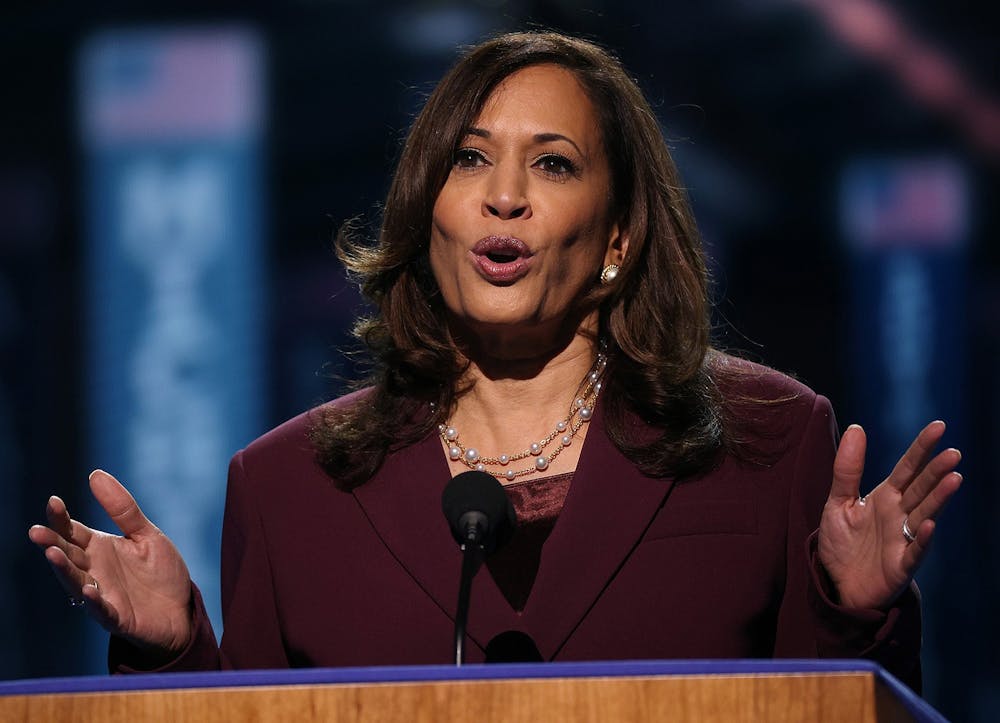Sen. Kamala Harris D-Calif., is the first woman of Black and South Asian descent to accept a major party's vice presidential nomination. Despite the historic decision, there is division on how the public views her. When Harris put in a bid to run for office, I quickly noticed many people destroying her character.
The overly critical nature of treatment toward Harris directly reflects how Black women in power are constantly treated. There is an expectation to be perfect and any mistake can quickly destroy an image. Non-Black women do not experience this perpetual judgement as often as Black women.
In the weeks following Biden’s announcement, Trump used the ‘angry Black woman" stereotype against Harris. He has called her "angry" and a "mad woman." These comments diminished who she is as a woman and politician.
To be a Black woman in a position of power in America is exhausting on every front. For example, people compared Michelle Obama to a gorilla. Meanwhile, Melania Trump has topless photos on the internet that do not receive the same scrutiny.
This even extends beyond America. Meghan, the Duchess of Sussex, was shamed for holding her baby bump. But, when the Duchess of Cambridge was pictured doing the same thing, people were not judgmental.
As Harris gained national attention, people destroyed her career as a prosecutor.
Some refer to her as “Copmala Harris,” focusing on the 27 years she served as a prosecutor, where she enforced laws that sent African Americans to jail. But a California public defender touted Harris as actually being the most progressive prosecutor they worked against. No politician is perfect, but her past is brought to light more extensively than others.
Vice President Mike Pence has a history of being anti-LGBT but has received far less scrutiny.
As a Black woman who aspires to be an education policy researcher, reformer and state senator, I am afraid of how people will treat me. I want people to hold me accountable, and I want people to be critical of my work. But I want people to lift me up when I make mistakes and not equate them to a total disregard of my character simply because I am a Black woman.
In light of these concerns, everyone must pursue but not dilute the truth. While it is important to ask questions, do good research and be critical of the research you come across, the judgements should not differ based on gender and race.
Society must trust the work Black women are doing in these spaces that are not historically designed for us. While nobody is perfect, it does more harm than good to be overly critical of Black women in power trying to make change.






